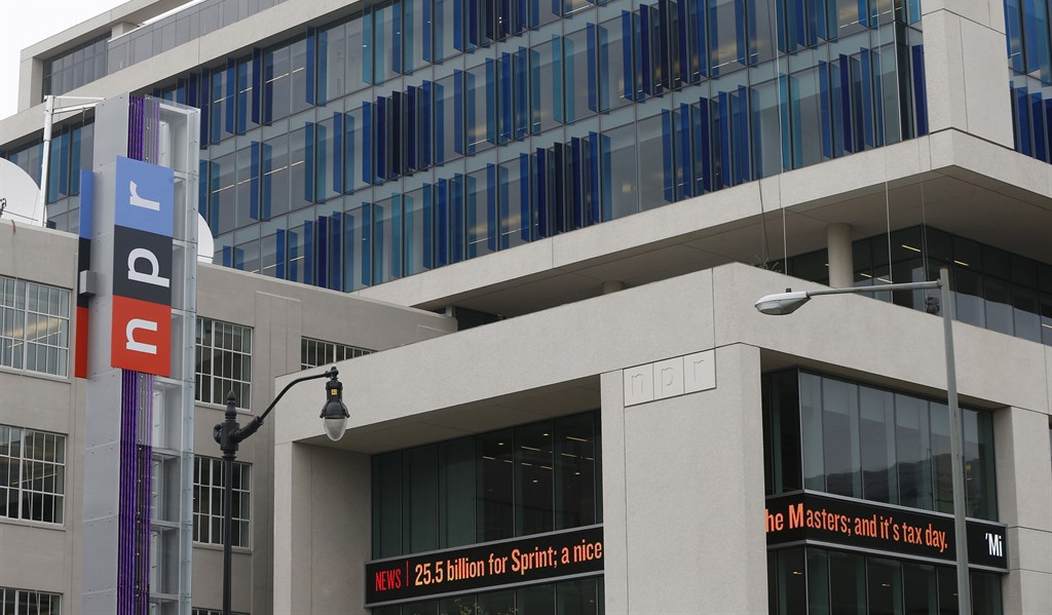The swift revolution against sexual harassment is ending the careers of a series of media "icons," left and right. But perhaps nowhere is this hypocrisy more notable (and deeper) than at PBS and NPR. These were the entities that made sexual harassment the boiling feminist issue when Anita Hill testified during Clarence Thomas' confirmation hearing in 1991.
Here's an easy question: Why didn't this sudden spirit of self-discovery and investigation happen back then? Or in any year since? It could have happened when then-President Bill Clinton settled with Paula Jones in 1998, or even last year as these networks enjoyed reporting on sexual harassment scandals inside Fox News. All along the way, it appears that very same sexual harassment was alive at both PBS and NPR.
And mum was the word.
In case you missed the trend -- and with all the other scandals breaking, who could blame you? -- on Nov. 1, NPR first forced out its vice president of news, Michael Oreskes, following accusations of sexual harassment during his tenure at NPR and The New York Times. Soon after he stepped down, five complaints were filed by women of NPR. On Nov. 3, The Washington Post said that "NPR's employees unleashed their fury" at CEO Jarl Mohn "over his handling of a sexual harassment scandal that appears to have spread." A few days later, Mohn took a medical leave.
The TV folks at PBS followed on Nov. 21, when they abruptly ended its broadcasts of longtime talk-show host Charlie Rose.
On Nov. 29, NPR followed that by firing Chief News Editor David Sweeney, who'd been at the taxpayer-subsidized radio network since 1993, for allegedly harassing subordinates.
Recommended
That same day, Minnesota Public Radio cut all business ties with star Garrison Keillor of "A Prairie Home Companion" for alleged sexual misconduct. Keillor was especially dismissive of the charges, which came right after he wrote a Washington Post commentary in which he ridiculed the demands for Sen. Al Franken to resign over allegedly groping women as "absurd." Confident of his sex appeal at age 75, Keillor boasted, "If I had a dollar for every woman who asked to take a selfie with me and who slipped an arm around me and let it drift down below the beltline, I'd have at least a hundred dollars."
Indeed, there seems to have been something smarmy about Keillor all along. Meet Garrison Keillor: sexual harassment victim. Howard Mortman of C-SPAN tweeted out an old National Press Club address by Keillor from April 7, 1994, in which Keillor proclaimed, "A world in which there is no sexual harassment at all is a world in which there will not be any flirtation."
This line did not make the press accounts at the time. Instead, the Associated Press reported the part of the speech where Keillor "chided the press" for trying to keep from the American people the "terrible truth" that "America gets along pretty well," and the fact that Clinton "is a soulful man" who "enjoys his work."
Bill Clinton, soulful harasser ... meet Garrison Keillor, soulful harasser.
The bifurcated public funding/private business nature of public broadcasting made men like Rose and Keillor less accountable, as there was not always a human resources department to handle complaints. They are profit-making multimillionaire contractors who acted as their own bosses. Their female employees were sitting ducks.
In what way, then, is "public" broadcasting morally superior to corporate broadcasting? And how deep is the hypocrisy on the left considering it waited decades to hold sexual harassers in its own taxpayer-funded ideological sandboxes accountable? They don't deserve one more red cent from taxpaying Americans.

























Join the conversation as a VIP Member